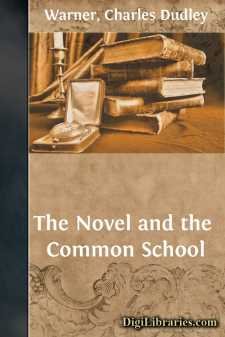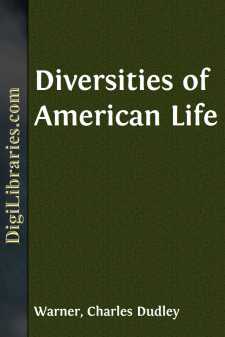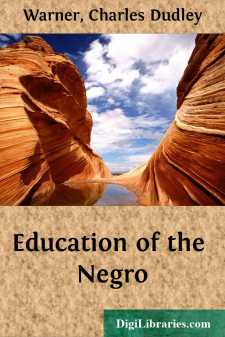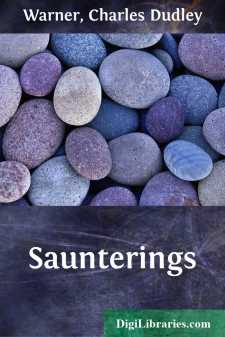Categories
- Antiques & Collectibles 13
- Architecture 36
- Art 48
- Bibles 22
- Biography & Autobiography 813
- Body, Mind & Spirit 142
- Business & Economics 28
- Children's Books 17
- Children's Fiction 14
- Computers 4
- Cooking 94
- Crafts & Hobbies 4
- Drama 346
- Education 46
- Family & Relationships 57
- Fiction 11829
- Games 19
- Gardening 17
- Health & Fitness 34
- History 1377
- House & Home 1
- Humor 147
- Juvenile Fiction 1873
- Juvenile Nonfiction 202
- Language Arts & Disciplines 88
- Law 16
- Literary Collections 686
- Literary Criticism 179
- Mathematics 13
- Medical 41
- Music 40
- Nature 179
- Non-Classifiable 1768
- Performing Arts 7
- Periodicals 1453
- Philosophy 64
- Photography 2
- Poetry 896
- Political Science 203
- Psychology 42
- Reference 154
- Religion 513
- Science 126
- Self-Help 84
- Social Science 81
- Sports & Recreation 34
- Study Aids 3
- Technology & Engineering 59
- Transportation 23
- Travel 463
- True Crime 29
Charles Dudley Warner
Charles Dudley Warner (1829-1900) was an American essayist, novelist, and editor, best known for his collaboration with Mark Twain on the novel "The Gilded Age: A Tale of Today." He was also a respected literary critic and travel writer, contributing to publications such as Harper's Magazine. Warner's work often reflected his keen observations on society and culture, and he was recognized for his wit and eloquence.
Author's Books:
Sort by:
There has been a great improvement in the physical condition of the people of the United States within two generations. This is more noticeable in the West than in the East, but it is marked everywhere; and the foreign traveler who once detected a race deterioration, which he attributed to a dry and stimulating atmosphere and to a feverish anxiety, which was evident in all classes, for a rapid change...
more...
It was near midnight: The company gathered in a famous city studio were under the impression, diligently diffused in the world, that the end of the century is a time of license if not of decadence. The situation had its own piquancy, partly in the surprise of some of those assembled at finding themselves in bohemia, partly in a flutter of expectation of seeing something on the border-line of propriety....
more...
This is a very interesting age. Within the memory of men not yet come to middle life the time of the trotting horse has been reduced from two minutes forty seconds to two minutes eight and a quarter seconds. During the past fifteen years a universal and wholesome pastime of boys has been developed into a great national industry, thoroughly organized and almost altogether relegated to professional...
more...
I. FORTRESS MONROE When Irene looked out of her stateroom window early in the morning of the twentieth of March, there was a softness and luminous quality in the horizon clouds that prophesied spring. The steamboat, which had left Baltimore and an arctic temperature the night before, was drawing near the wharf at Fortress Monroe, and the passengers, most of whom were seeking a mild climate, were...
more...
At the close of the war for the Union about five millions of negroes were added to the citizenship of the United States. By the census of 1890 this number had become over seven and a half millions. I use the word negro because the descriptive term black or colored is not determinative. There are many varieties of negroes among the African tribes, but all of them agree in certain physiological if not...
more...
MISAPPREHENSIONS CORRECTED I should not like to ask an indulgent and idle public to saunter about with me under a misapprehension. It would be more agreeable to invite it to go nowhere than somewhere; for almost every one has been somewhere, and has written about it. The only compromise I can suggest is, that we shall go somewhere, and not learn anything about it. The instinct of the public against any...
more...
BADDECK AND THAT SORT OF THING I "Ay, now I am in Arden: the more fool I; when I was at home,I was in a better place; but travellers must be content."—TOUCHSTONE. Two comrades and travelers, who sought a better country than the United States in the month of August, found themselves one evening in apparent possession of the ancient town of Boston. The shops were closed at early candle-light;...
more...
This is the first public meeting of the National Institute of Arts and Letters. The original members were selected by an invitation from the American Social Science Association, which acted under the power of its charter from the Congress of the United States. The members thus selected, who joined the Social Science Association, were given the alternative of organizing as an independent institute or as...
more...
INTRODUCTORY LETTER MY DEAR MR. FIELDS,—I did promise to write an Introduction to these charming papers but an Introduction,—what is it?—a sort of pilaster, put upon the face of a building for looks' sake, and usually flat,—very flat. Sometimes it may be called a caryatid, which is, as I understand it, a cruel device of architecture, representing a man or a woman, obliged to hold up upon...
more...
Delivered before the Alumni of Hamilton College, Clinton, N. Y., Wednesday, June 26, 1872 Twenty-one years ago in this house I heard a voice calling me to ascend the platform, and there to stand and deliver. The voice was the voice of President North; the language was an excellent imitation of that used by Cicero and Julius Caesar. I remember the flattering invitation—it is the classic tag...
more...











